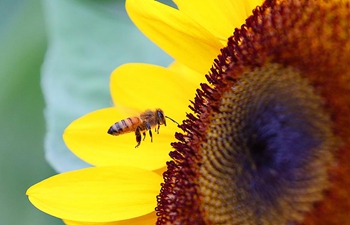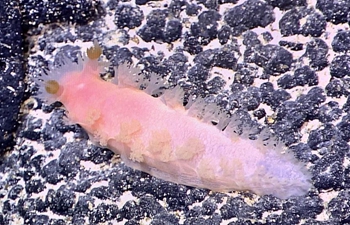KUNMING, June 20 (Xinhua) -- Chinese scientists have announced that they had completed chromosome-scale sequencing and assembly of the genome of an invasive alien species -- spodoptera frugiperda, which is commonly known as fall armyworm, a species that causes heavy damage to crops.
The research was jointly conducted by several organizations including Yunnan Agricultural University, Shenzhen-based BGI (China's top gene-sequencing provider,) the Institute of Zoology under the Chinese Academy of Sciences, and the Chinese Academy of Agricultural Sciences.
Scientists have assembled two chromosome-scale genomes of the fall armyworm, one male and one female, according to researchers from the Yunnan Agricultural University.
Liu Huan from BGI life science research institute said data related to the raw sequencing and chromosome-level genome assemblies have been uploaded to China National GeneBank and are freely accessible to the world.
Researchers said further population analyses of corn strain and rice strain revealed that the Chinese fall armyworm is most likely invaded from Africa.
Fall armyworms are native to the Americas, but they have been moving eastwards since 2016, sweeping across Africa before arriving in Asia. The pest has wreaked havoc in many countries, leading to a 20-30 percent reduction in corn and sugarcane output in parts of Africa and Asia. Some areas even witnessed complete crop failures.
It has spread across China's southern and southwestern areas since January, affecting farmland in more than 10 provincial-level regions including Yunnan, Guangxi, Guizhou and Henan.
"Preliminary estimates suggest that the armyworms may cause more than 200 million yuan (around 29 million U.S. dollars) of losses in agriculture of Yunnan without any effective control," said Gui Furong, a professor with Yunnan Agricultural University.
However, scientists have now identified effective chemical pesticides, a biopesticide, and several natural enemy insects to manage the spread of fall armyworms.

















